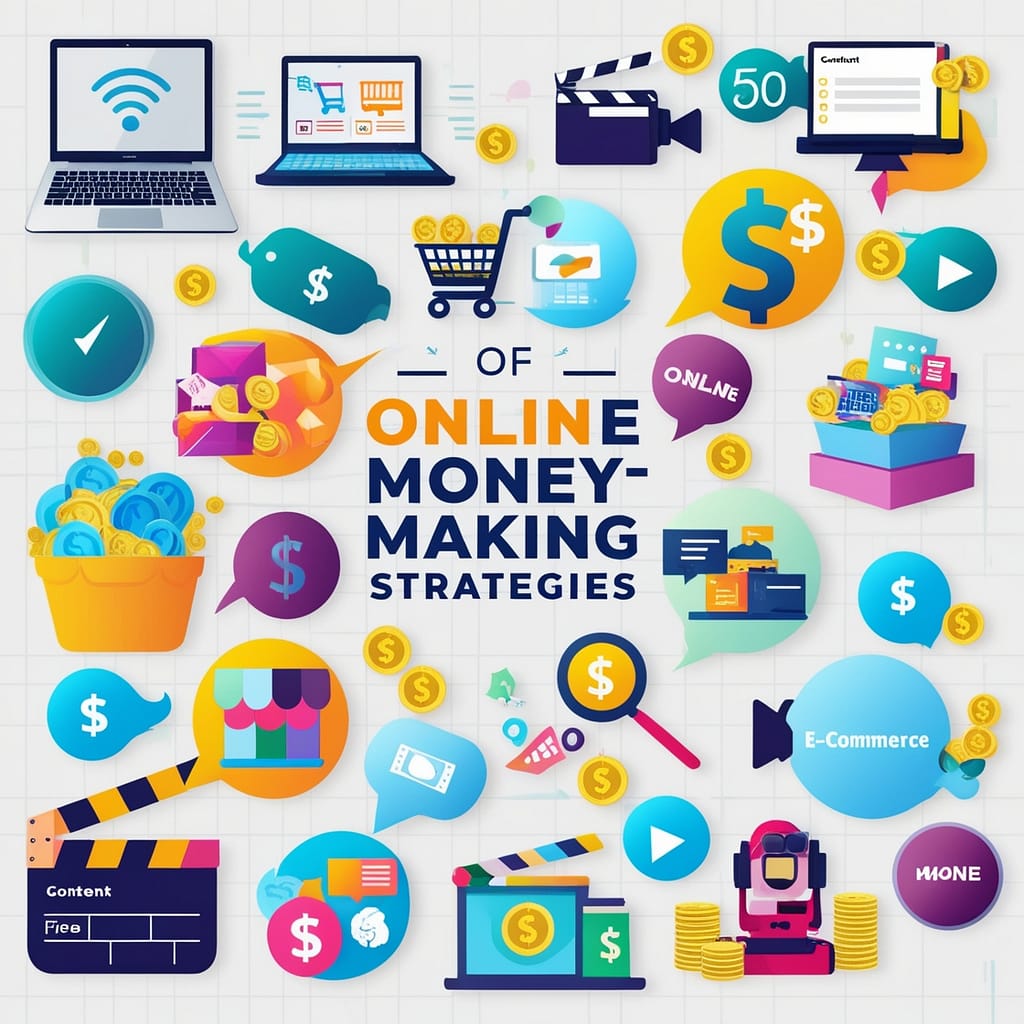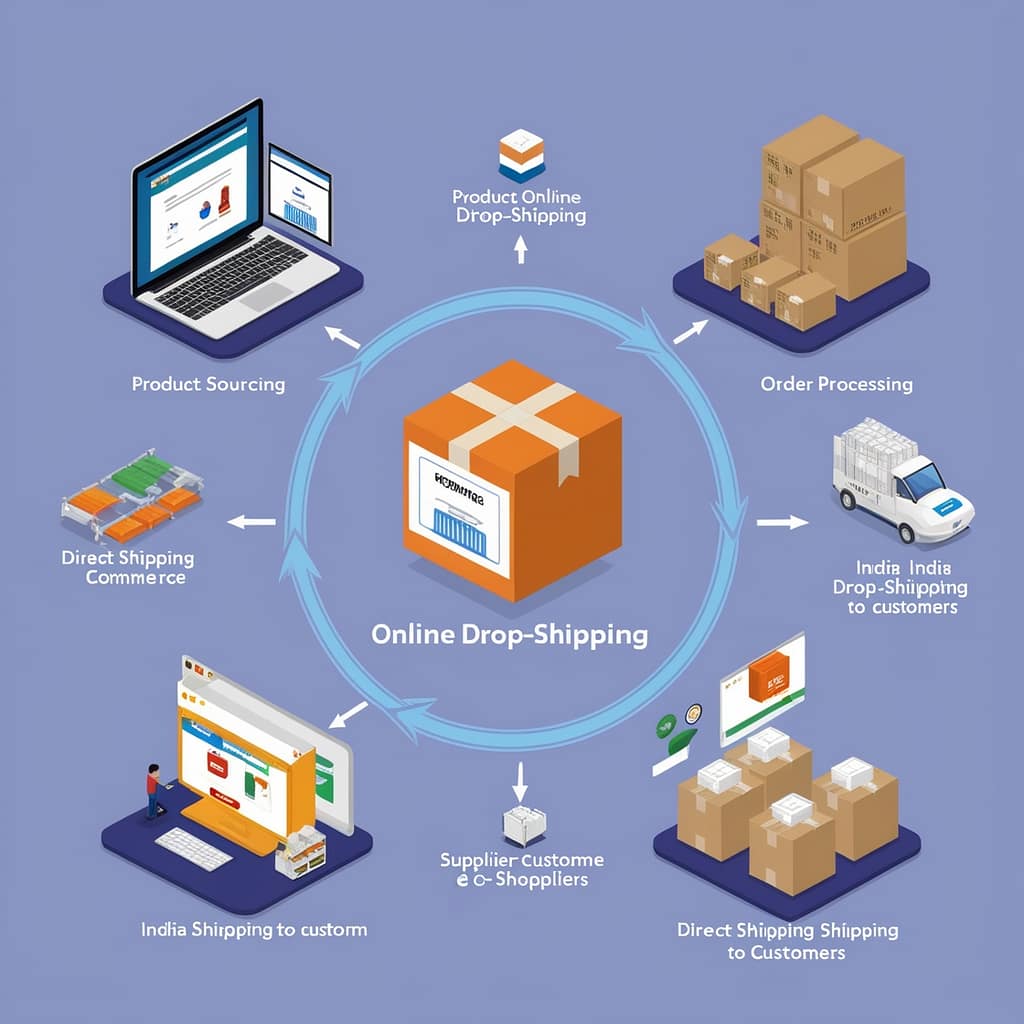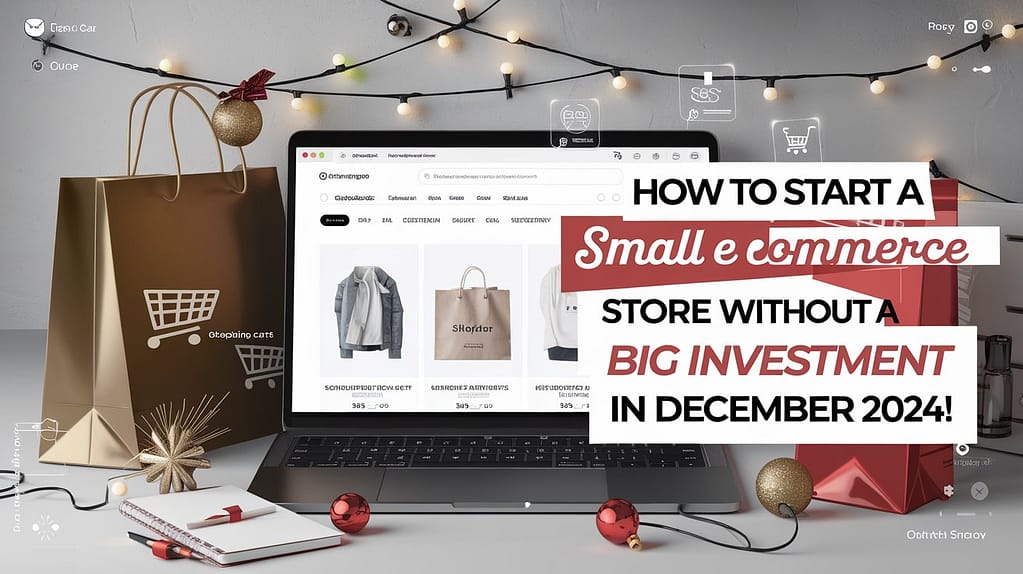
Introduction
Have you ever dreamt of running your online store but got scared of the potential costs? The good news is that starting a small eCommerce store today doesn’t require a fortune. December 2024 is the perfect time to jump in. Why? The holiday rush and year-end clearances create a ripe opportunity for new businesses to thrive. Small eCommerce stores are booming as people increasingly shop online for convenience and variety. Let’s dive into how you can get started without spending big bucks.
Table of Contents
Understanding the Basics of eCommerce
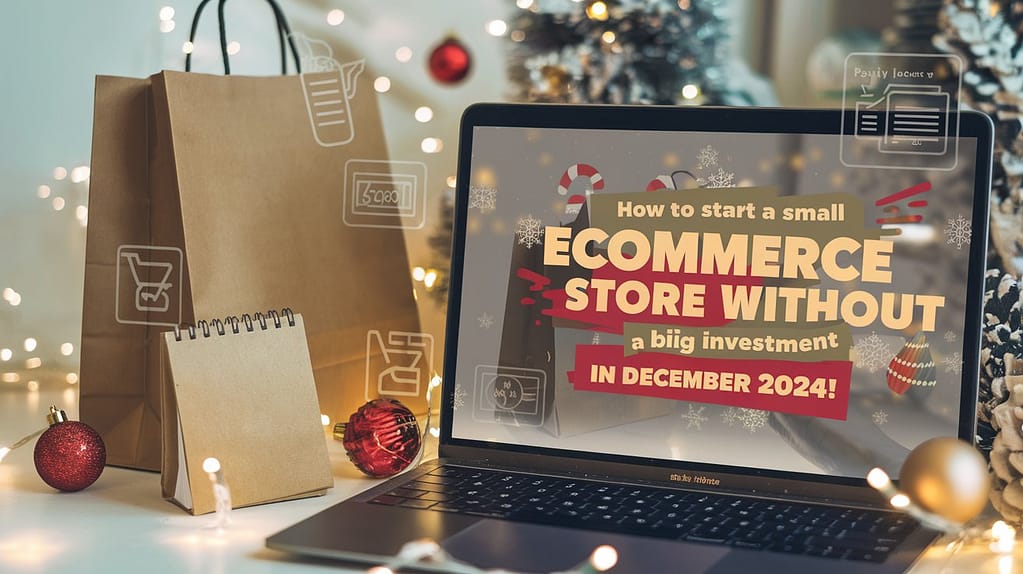
What is eCommerce?
At its core, eCommerce is simply the buying and selling of goods or services online. Whether it’s physical products, digital downloads, or services, the opportunities are endless. The beauty of eCommerce is its flexibility—you can run it from anywhere!
Types of eCommerce Models to Consider
Before you dive in, decide what model suits you best. There’s:
- B2C (Business to Consumer): Selling directly to customers.
- B2B (Business to Business): Selling to other businesses.
- Dropshipping: A no-inventory model where suppliers handle storage and shipping.
Planning Your eCommerce Store
Choosing Your Niche
Selecting a niche is like finding your sweet spot in the vast eCommerce universe. Think of niches that are trending yet not overcrowded.
Popular Niches in 2024
Sustainable products, home fitness gear, and unique tech gadgets.
Tools for Niche Research
Use platforms like Google Trends, AnswerThePublic, or niche-specific forums.
Identifying Your Target Audience
Understanding your customers is key. Ask yourself:
- Who will buy my products?
- What are their preferences and pain points?
Use this insight to tailor your offerings and marketing.
Setting Up an eCommerce Store Without Breaking the Bank
Leveraging Free or Affordable Platforms
Platforms like Shopify and WooCommerce let you set up shop quickly.
Shopify Starter Plan
Ideal for beginners; it offers basic features without the hefty price tag.
WooCommerce for WordPress
A flexible, free plugin with numerous customization options.
Domain and Hosting on a Budget
Go for affordable providers like Namecheap for domains and SiteGround for hosting. Look out for year-end deals to save even more.
Designing a User-Friendly Website
Importance of Simple and Responsive Design
Keep it simple. Nobody wants to navigate a confusing website. A responsive design ensures your store looks great on any device.
Free Design Tools and Resources
Use tools like Canva for graphics or free WordPress themes to get started without hiring a designer.
Finding Affordable Products to Sell
Dropshipping as a Cost-Effective Solution
Avoid the hassle of inventory. With drop shipping, you sell first, and suppliers handle the rest. Platforms like Oberlo and Spocket make this easy.
Sourcing from Local Suppliers
Check out local wholesalers or craft fairs. You’d be surprised at the unique products you can find locally.
Marketing Your eCommerce Store
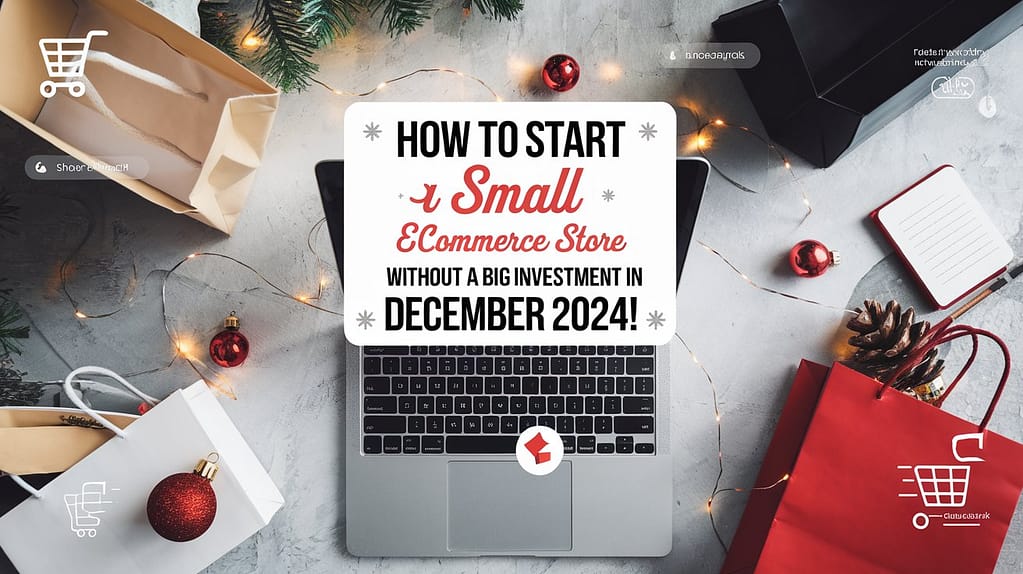
Social Media Marketing on a Budget
Social media is your best friend. Platforms like Instagram and TikTok are goldmines for attracting customers.
Reels and TikToks
Short, engaging videos grab attention.
Facebook Communities
Build trust by interacting in niche groups.
Email Marketing Basics for Beginners
Use free tools like Mailchimp to start building an email list. Consistent updates keep your audience engaged.
Managing Your eCommerce Business
Tools for Inventory and Order Management
Try free or affordable tools like Zoho Inventory or Wave to streamline operations.
Tracking Metrics That Matter
Keep an eye on stats like conversion rates, average order value, and traffic sources. These tell you what’s working and what needs tweaking.
Tips to Keep Costs Low
DIY as Much as Possible
From designing your logo to creating product descriptions, there’s a lot you can do yourself with free tools.
Negotiating with Suppliers
Never settle for the first price. Many suppliers are willing to offer discounts, especially for bulk orders.
Avoiding Common Pitfalls
Overloading Your Inventory
Start small. Avoid investing heavily in products that might not sell.
Ignoring Customer Feedback
Feedback is gold. Listen to your customers and tweak your offerings accordingly.
Growing Your eCommerce Store
Expanding Your Product Range
Once you’ve gained traction, introduce complementary products to boost sales.
Building Partnerships with Other Businesses
Collaborate with influencers or other small businesses for mutual growth.
The Future of eCommerce
Trends to Watch in 2025
Stay ahead by keeping tabs on AI-driven personalization, faster delivery solutions, and the rise of AR shopping experiences.
Preparing for Technological Advancements
Keep learning. Technology evolves quickly, and staying updated ensures you don’t fall behind.
Conclusion
Starting a small eCommerce store doesn’t have to drain your bank account. By leveraging affordable tools and strategies, you can create a profitable business. Take it step by step, keep your costs low, and focus on building relationships with your customers. The journey might feel daunting but remember: every big business started small.
FAQs
1. How much money do I need to start a small eCommerce store?
You can start with as little as $100 if you use free tools and platforms.
2. What are the best platforms for a beginner?
Shopify Starter Plan and WooCommerce are excellent for beginners.
3. Can I run an eCommerce store part-time?
Absolutely! Many successful stores started as side hustles.
4. What’s the easiest way to find products to sell?
Start with dropshipping or sourcing from local suppliers for unique items.
5. How do I attract my first customers?
Use social media, and email marketing, and participate in niche communities to build an audience.
